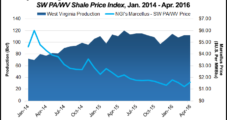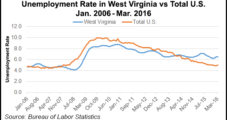Pennsylvania Gov. Tom Wolf on Tuesday proposed for the third time a severance tax on natural gas production to help plug yet another structural budget deficit that’s projected to be $3 billion in the state’s next fiscal year, which begins in July.
Budget
Articles from Budget
Ohio’s Kasich Continues Push For Unconventional Oil/Gas Severance Tax Increase
Ohio Gov. John Kasich on Mondayrecycled a failed budget proposal to increase the state’s severance tax on unconventional oil and natural gas production to 6.5%.
Brief — Texas, EPA
The U.S. Environmental Protection Agency (EPA) has proposed withdrawal of a requirement that certain power plants (typically coal-fired) in Texas participate in the second phase of the Cross-State Air Pollution Rule (CSAPR) trading programs for annual emissions of sulfur dioxide (SO2) and nitrogen oxides, according to a notice in the Federal Register. The move “…is intended to address a decision of the U.S. Court of Appeals for the District of Columbia Circuit remanding the CSAPR Phase 2 SO2 budget for Texas to the EPA for reconsideration,” the notice said.
Pennsylvania Bill to Roll Back Some of DEP’s New Oil/Gas Regs Fails
A Pennsylvania Senate bill that would have rolled back certain provisions of a wide-ranging regulatory package for shale drillers that’s set to take effect soon lost steam last week and failed before the legislature recessed for the summer.

West Virginia Ends Rough Fiscal 2016 With $195M Shortfall in Severance Taxes
West Virginia’s severance tax revenues for fiscal year 2016 came in $195 million below projections, capping what officials characterized as a brutal year for the state’s energy industries.
Pennsylvania Budget Negotiations Continue Without NatGas Severance Tax Debate
As Pennsylvania’s House and Senate leaders continued to negotiate over ways to fund a $31.5 billion state budget on Tuesday, the severance tax on natural gas production proposed earlier this year by Democratic Gov. Tom Wolf was not among the options being discussed.
Brief — West Virginia Budget
West Virginia Gov. Earl Ray Tomblin’s spokesman said on Friday that the governor would veto a budget passed by the legislature on Thursday that uses $183 million of Rainy Day reserve funds and $62 million of one-time funds from various state accounts to balance a deficit. The state has been without a 2016-2017 budget since March when lawmakers failed to pass it after they couldn’t agree on tax increases and spending cuts (see Shale Daily,March 15). Instead they relied on the reserve and one-time funds to plug a $270 million shortfall. Tomblin’s office said the budget doesn’t address a $380 million shortfall that’s projected for fiscal years 2018 and 2019 and said tax increases are going to have to be a part of the solution. The state has long relied on coal and natural gas severance taxes to balance its budget, but the commodities downturn has strained its finances. It has already cut state spending on the falling revenues (see Shale Daily,Oct. 6, 2015). The state has projected a significant decline in FY 2016 severance tax collections, reflecting coal’s sustained fall and stagnant gas prices. A special session has been scheduled for June 12. If lawmakers don’t pass a budget by July 1, state government would shut down.

Standard & Poor’s Downgrades West Virginia Bond Rating on Bleak Commodities Outlook
The downturn in oil, gas and coal markets continues to strain West Virginia’s financial status, as Standard & Poor’s Ratings Services lowered the state’s general obligation debt and bond ratings last week, citing the energy sector’s weak outlook and the revenue shortfalls it has created in the state budget.

Standard & Poor’s Downgrades West Virginia Bond Rating on Bleak Commodities Outlook
The downturn in oil, gas and coal markets continues to strain West Virginia’s financial status, as Standard & Poor’s Ratings Services lowered the state’s general obligation debt and bond ratings last week, citing the energy sector’s weak outlook and the revenue shortfalls it has created in the state budget.

Alberta Budget Hit Hard by Slumping Oil/NatGas Prices; Recovery in Sight?
Canada’s main natural gas- and oil-producing jurisdiction braced Thursday for another 36 months of hard times, with commodity prices and revenues seen likely to fall far short of fully recovering.




